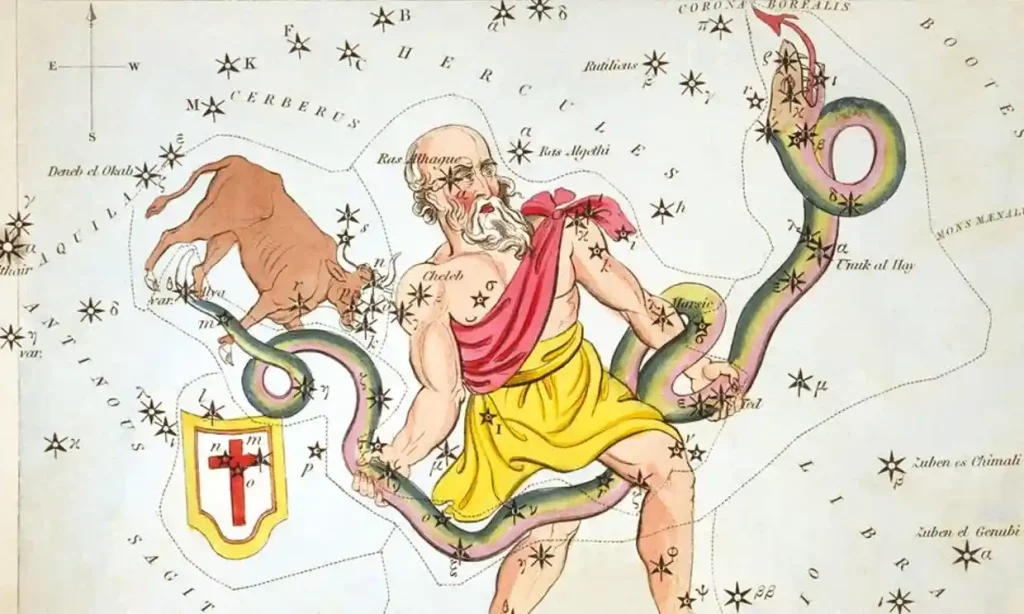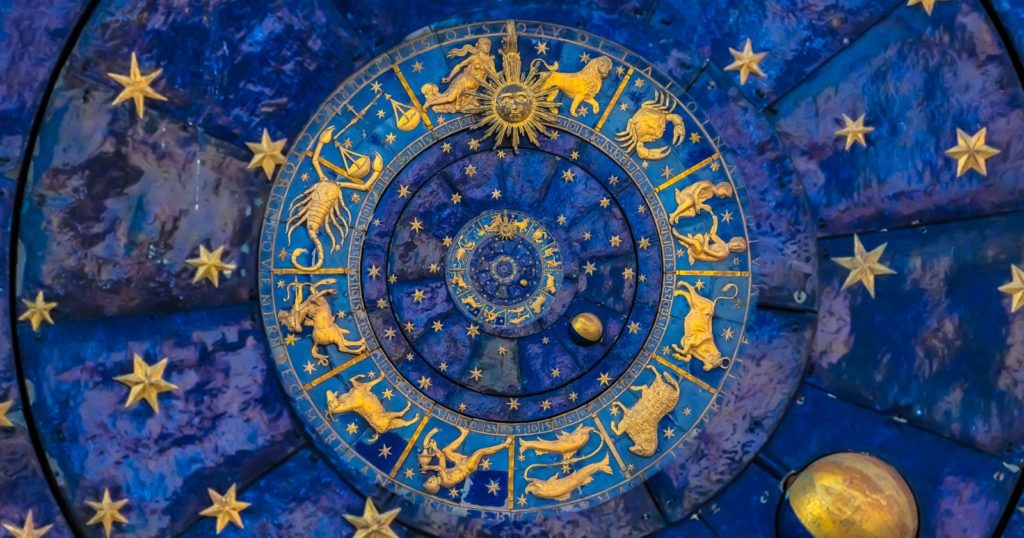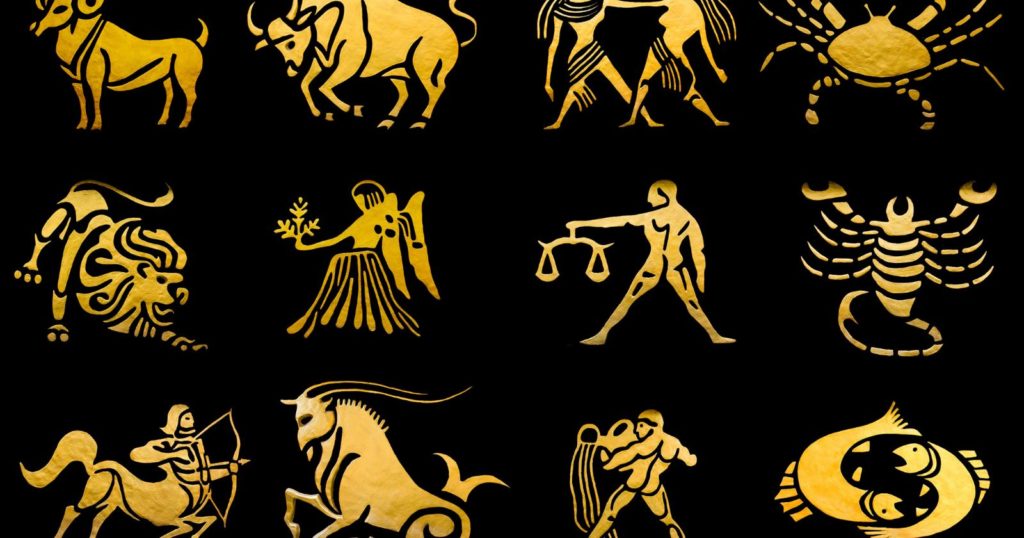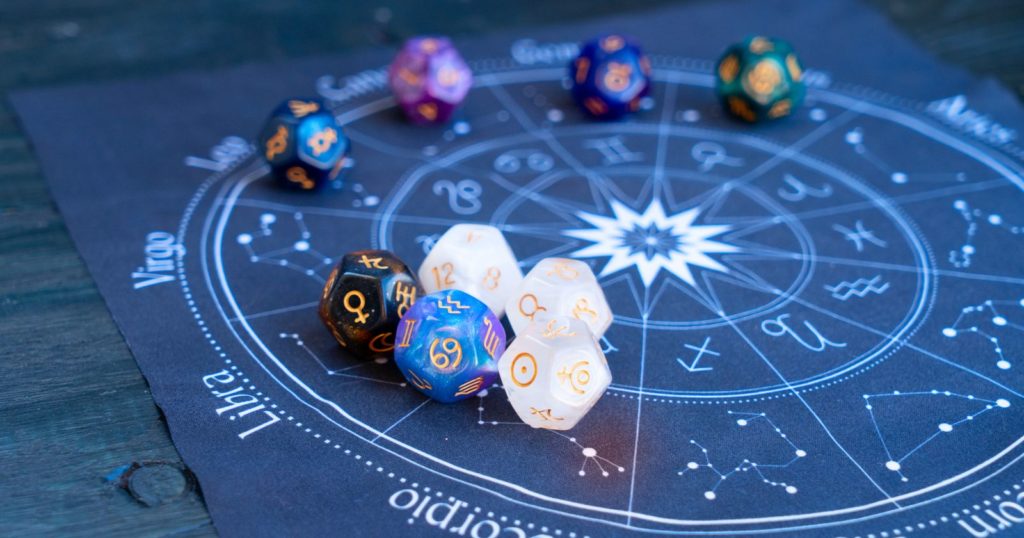In the vast, awe-inspiring cosmos above us, stars tell stories of ancient myths, guide sailors across vast oceans, and according to astrologers, shape our destinies. There are twelve well-known constellations, each associated with a sign of the Zodiac. These signs, from Aries to Pisces, are deeply ingrained in our collective consciousness. They subtly shape our identities, our relationships, and the way we navigate our world. But did you know there’s a lesser-known, controversial thirteenth constellation in this cosmic narrative? This is where our story begins – with Ophiuchus, the Serpent Bearer.
From Greek mythology to modern astrology, Ophiuchus has been the subject of mystery, intrigue, and controversy. Its name might not roll off the tongue as easily as Leo or Gemini, but it holds an essential place in the cosmos and our understanding of it. Unlike the twelve widely recognized zodiac signs, Ophiuchus, often pronounced as “o-few-kuss,” is the wild card, the forgotten sign, the enigma.
For centuries, Ophiuchus has been lost in the celestial shuffle, overshadowed by its more famous zodiac counterparts. But recent debates within the astrology community have brought this constellation back into the limelight, igniting curiosity and conversations around the globe. Some claim it should be recognized as the thirteenth zodiac sign, while others firmly believe in the traditional twelve-sign system.
Why is there such a fervent debate around this constellation? What are the characteristics of someone born under the sign of Ophiuchus, and how does it compare to the traits of the other zodiac signs? Can an astrologer consider an individual as an Ophiuchus? As we delve into these questions, you’ll find that the story of Ophiuchus is more than just a tale of stars and myths. It’s a journey into the heart of astrology, challenging our preconceived notions and offering a fresh perspective on this ancient discipline.
Ophiuchus in the Zodiac
To understand the place of Ophiuchus in the Zodiac, let’s take a brief step back and look at the celestial map that guides astrology. In the western astrological system, the Zodiac is defined by the path the sun traces through the sky over the course of a year, the ecliptic. Along this path lie 12 constellations, which have been associated with the 12 signs of the Zodiac, from Aries to Pisces. These constellations are seemingly ‘occupied’ by the sun for about a month each, and hence, they are considered to have influence over individuals born in that period.
However, the reality of our cosmos is more complex than this neat division. For one, the sun doesn’t spend an exact month in each constellation. Some constellations get more sun-time than others, and moreover, the sun also passes through a thirteenth constellation – Ophiuchus, the Serpent Bearer.
Situated between Scorpius to the west and Sagittarius to the east, Ophiuchus is a large constellation straddling the celestial equator. The sun spends about 19 days in the sign of Ophiuchus (usually between November 29 and December 18), which is more time than it spends in some of the traditional 12 zodiac signs. Yet, it’s been largely ignored in astrology.
The omission of Ophiuchus from the traditional zodiac system can be traced back to the ancient Babylonians. While they were aware of the constellation, they chose to divide the zodiac into 12 equal parts, corresponding with the 12 lunar cycles in a year and the 12 stations along the ecliptic. They opted to drop Ophiuchus, despite its presence on the ecliptic, to maintain this symmetry.
To consider Ophiuchus as part of the Zodiac, then, would disrupt a time-honored system that has remained relatively unchanged for more than two millennia. It would imply a shift from the 12-house system – each house representing aspects of life like career, relationships, self, etc. – to a 13-house system, creating ripple effects throughout astrological interpretations and horoscope predictions.
So, where does this leave our mysterious Serpent Bearer? Can we ignore the very literal path of the sun and stick to our neat 12-sign system? Or should we adapt astrology to reflect the reality of the cosmos? This brings us to the heart of the controversy surrounding Ophiuchus – a controversy that forces us to question the very nature and purpose of astrology.
The Debate: Ophiuchus as the 13th Sign
The debate around recognizing Ophiuchus as the 13th Zodiac sign is no fleeting argument. It has raged on for years within the astrological community, pitting traditionalists who favor the status quo against progressives who advocate for a model that mirrors our astronomical reality.
Those in favor of including Ophiuchus assert that astrology should be as astronomically accurate as possible. After all, astrology is about the relationship between celestial phenomena and our lives. They argue that ignoring the sun’s path through Ophiuchus undermines astrology’s integrity, making it less reflective of the cosmos and, in turn, less relevant to us.
On the other hand, those against the inclusion of Ophiuchus see the existing 12-sign system as more symbolic than literal. They argue that the 12-sign Zodiac isn’t simply an astronomical reality, but a spiritual, philosophical, and mathematical construct deeply intertwined with the fabric of various cultures. Traditionalists hold that the twelvefold division reflects the 12 lunar cycles in a year and embodies essential duality concepts – such as the 12 hours of day and night or the 12 months of the year – that permeate human existence.
The debate is further complicated by the challenge of defining Ophiuchus traits and characteristics. If we do accept Ophiuchus as the 13th sign, what qualities define someone born under this sign? Are we ready to shuffle everyone’s zodiac signs, cause identity crises, and rewrite horoscope columns worldwide?
The controversy over Ophiuchus is not merely about adding a new sign. It poses broader questions about the nature and purpose of astrology. Is it a discipline that should evolve with our understanding of the cosmos, or is it a symbolic language whose value lies more in its stability and continuity? This debate about Ophiuchus serves as a microcosm of the broader discussion about astrology’s role in our lives.
Characteristics of Ophiuchus
Assuming for a moment that we welcome Ophiuchus into our astrological fold as the 13th zodiac sign, the next inevitable question is: What traits define someone born under this sign? Like the other zodiac signs, Ophiuchus has been associated with a distinct set of characteristics that seem to resonate with those born between November 29 and December 18.
Ophiuchus, often depicted as a man wrestling with a snake and sometimes associated with Asclepius, the Greek god of medicine, reflects the struggle for harmony between mankind and nature. This is seen in the traits associated with Ophiuchus – individuals born under this sign are often believed to be seekers of wisdom and harmony.
They are described as passionate yet temperamental, values-driven, and constantly in pursuit of truth and knowledge. They are curious, imaginative, and aren’t afraid to challenge societal norms or seek out unconventional paths. They are said to have a natural affinity for the mysteries of life and death, making them drawn to professions like medicine, psychology, and philosophy.
Like Sagittarius, with which it shares a part of the ecliptic, Ophiuchus is also associated with a love for adventure and exploration. However, unlike Sagittarians, who are known for their extroversion, Ophiuchians are often more introspective and private, preferring to wrestle with their thoughts in solitude.
Yet, as fascinating as these traits may sound, they are met with skepticism and controversy. Critics argue that ascribing characteristics to Ophiuchus can be arbitrary and lack a historical basis, unlike the traditional zodiac signs which have centuries of astrological research and observation underpinning them.
Nevertheless, these proposed traits of Ophiuchus have ignited the imagination of many and continue to fuel the debate on its inclusion in the zodiac. Whether you see yourself in these traits or dismiss them as mere speculation, the exploration of Ophiuchus invariably makes us rethink our relationship with astrology and the cosmos.
Personal Experience with Ophiuchus
As an astrologer, I’ve encountered a wide array of reactions to the idea of Ophiuchus. Some greet it with curiosity, others with skepticism, and many with confusion. However, it was my experience with one client, whom I’ll refer to as Sarah, that remains deeply etched in my memory and provides an illuminating perspective on the Ophiuchus debate.
Sarah came to me a few years ago for a standard birth chart reading. She had always identified as a Sagittarius and wanted deeper insight into her sign’s influence on her personality and life path. However, Sarah was born on December 3rd, which, by the revised 13-sign system, would make her an Ophiuchus.
When I explained the controversy surrounding her astrological identity, Sarah’s reaction was surprisingly enthusiastic. Rather than feeling conflicted or confused, she felt intrigued. She decided to dive deeper into the attributes of both Sagittarius and Ophiuchus, to see which resonated more with her life experience and personality.
In many ways, Sarah was a Sagittarius through and through – vibrant, adventurous, and intellectually curious. But as she explored the traits of Ophiuchus – the pursuit of knowledge, the thirst for truth, the introspective nature – she found a part of herself she felt had been ignored.
She was drawn to the symbolism of Ophiuchus, the Serpent Bearer, a figure striving for harmony and balance, not unlike her own journey. She began to identify more with Ophiuchus, seeing in it a reflection of her own complex personality, which was both outgoing and introspective, both conventional and challenging of societal norms.
As an astrologer, my job is not to dictate who a person is based on their zodiac sign, but rather to help them explore different aspects of themselves and their lives. Watching Sarah explore her Ophiuchus identity was a unique journey, a fascinating meld of personal growth, self-discovery, and cosmic exploration.
This experience taught me that the debate about Ophiuchus extends beyond academic discourse or astrological correctness. For many, like Sarah, it’s about self-identity and understanding, about finding pieces of themselves in the stars. It’s about opening up to the possibility that our celestial narrative might be broader and richer than we’ve traditionally conceived. The story of Ophiuchus, whether we accept it as the 13th sign or not, invites us all to question, explore, and ultimately, to understand ourselves better in the grand cosmic scheme.
What It Means to be an Ophiuchus
For those who identify as an Ophiuchus or are open to exploring this alternative perspective, the question arises: What does it truly mean to be an Ophiuchus?
Being an Ophiuchus is an invitation to embrace the complexity within oneself and to seek harmony in a world filled with contradictions. It signifies a journey of self-discovery and a willingness to challenge the conventional paths set by society. Ophiuchus individuals often possess a deep yearning for wisdom, truth, and understanding, which drives them to explore the mysteries of life and the universe.
To be an Ophiuchus is to embody the archetype of the Serpent Bearer, representing the struggle to reconcile opposing forces within oneself and the world at large. This archetype symbolizes the balance between light and darkness, the eternal dance between life and death, and the quest for healing and transformation.
Ophiuchus individuals often possess a keen intellect, a thirst for knowledge, and a deep sense of intuition. They are natural seekers of truth, unafraid to delve into the depths of their own psyche and challenge long-held beliefs. Their journey often involves introspection, personal growth, and a constant questioning of the status quo.
Being an Ophiuchus also means embracing the serpent symbolism. The serpent has long been associated with wisdom, regeneration, and spiritual transformation in various cultures. Ophiuchus individuals often possess an innate understanding of the transformative power of shedding old skins and embracing new beginnings.
It’s important to remember that the traits and characteristics associated with Ophiuchus, like any zodiac sign, are not meant to define an individual completely. We are complex beings, shaped by various influences beyond astrology. However, identifying with Ophiuchus can provide a framework for self-reflection and personal growth, offering a new lens through which to understand oneself and navigate life’s challenges.
In the end, whether one identifies as an Ophiuchus or not, what matters most is the willingness to explore different perspectives, embrace our own complexities, and find a sense of harmony within ourselves and the ever-evolving cosmos.
Ophiuchus and Modern Astrology
The inclusion of Ophiuchus in modern astrology has brought about a paradigm shift in the way we approach this ancient practice. While traditional astrology has adhered to the 12-sign system for centuries, the growing interest in Ophiuchus has prompted astrologers to reassess their methodologies and interpretations.
One of the key impacts of Ophiuchus on modern astrology is the expansion of the zodiac wheel. With the addition of the Serpent Bearer, astrologers are exploring the possibilities of a 13-sign system, acknowledging the sun’s passage through Ophiuchus during specific dates. This shift challenges the long-standing traditions of astrological associations, requiring a reevaluation of astrological charts, horoscopes, and other astrological practices.
Moreover, Ophiuchus’s inclusion has opened up new avenues for astrological research and exploration. Astrologers are now examining the unique characteristics and qualities associated with Ophiuchus individuals, seeking to define their strengths, challenges, and life paths. This fresh perspective adds depth and complexity to astrological interpretations, providing a broader framework for understanding human experiences.
At the same time, the debate surrounding Ophiuchus has also prompted astrologers to reflect on the limitations of astrology itself. It invites them to question the extent to which astrological signs define an individual’s identity and destiny. The inclusion of Ophiuchus serves as a reminder that astrology, while insightful and intriguing, should not be treated as an absolute truth but rather as a tool for self-reflection and personal growth.
As modern astrology continues to evolve, the conversation around Ophiuchus will likely persist. Some may fully embrace it as a valuable addition to the astrological landscape, while others may remain skeptical or choose to adhere to the traditional 12-sign system. Regardless of personal beliefs, the presence of Ophiuchus challenges astrologers and enthusiasts alike to embrace new perspectives, expand their understanding, and ultimately, cultivate a more inclusive and nuanced approach to the cosmic art of astrology.
Conclusion
The story of Ophiuchus, the Serpent Bearer, weaves a captivating tale of cosmic mystery and human curiosity. Its place in the zodiac and the ongoing debate surrounding its inclusion have sparked discussions, introspection, and reevaluation within the realm of astrology.
Whether we choose to embrace Ophiuchus as the 13th zodiac sign or stick to the traditional twelve, its existence challenges us to explore the boundaries of astrology, question our beliefs, and expand our understanding of the cosmos. It encourages us to delve deeper into the complexities of our own identities, embracing the contradictions that make us uniquely human.
As astrologers and enthusiasts continue to explore the traits, characteristics, and potential influence of Ophiuchus, it’s important to remember that astrology, at its core, is a tool for self-reflection, personal growth, and connection to the vast universe. Whether we identify as an Ophiuchus, a Sagittarius, or any other zodiac sign, astrology invites us to navigate the tapestry of our lives with curiosity, compassion, and a willingness to explore the interplay between celestial forces and our own journeys.
So, let us embark on this celestial adventure with open minds and open hearts, embracing the diversity of perspectives and interpretations that astrology offers. Whether we find solace and guidance in the traditional twelve signs or feel a deep resonance with the enigmatic Ophiuchus, astrology has the power to inspire, uplift, and provide insight into our lives.
As the stars continue to shine above, let us remember that astrology, like life itself, is a beautiful tapestry woven with threads of mystery, meaning, and the ever-unfolding journey of self-discovery. May we explore the cosmos with wonder, seek our own truths, and find harmony amidst the celestial dance.
In the grand cosmic symphony, Ophiuchus remains a celestial riddle, inviting us to ponder the enigmas of existence and our place within the universe.
References
- “The Real 13 Zodiac Astrology” by Walter Berg
- “Ophiuchus: The Thirteenth Sign?” by Joyce Keller
- “The Complete Book of Astrology” by Caitlin Johnstone




